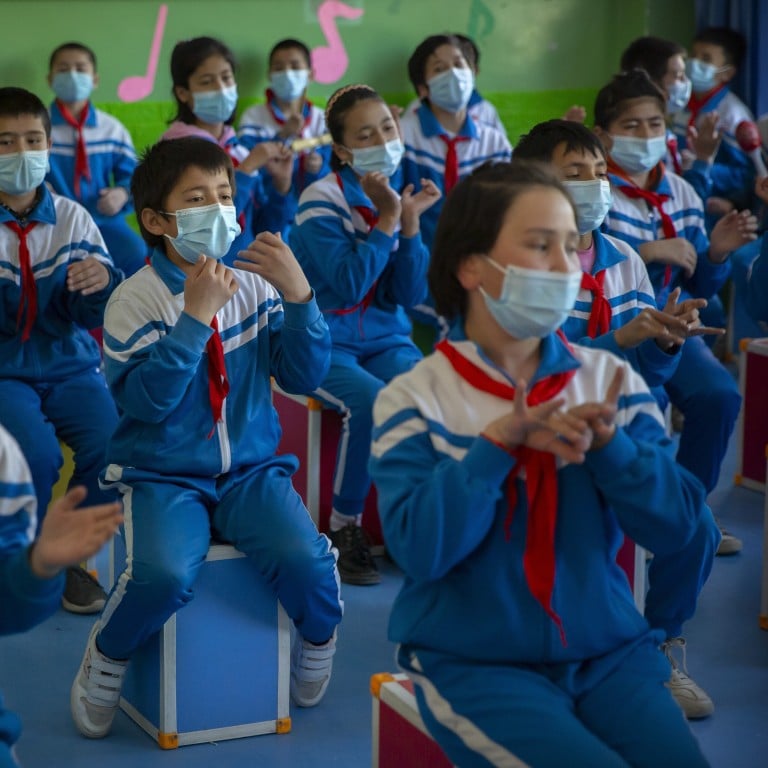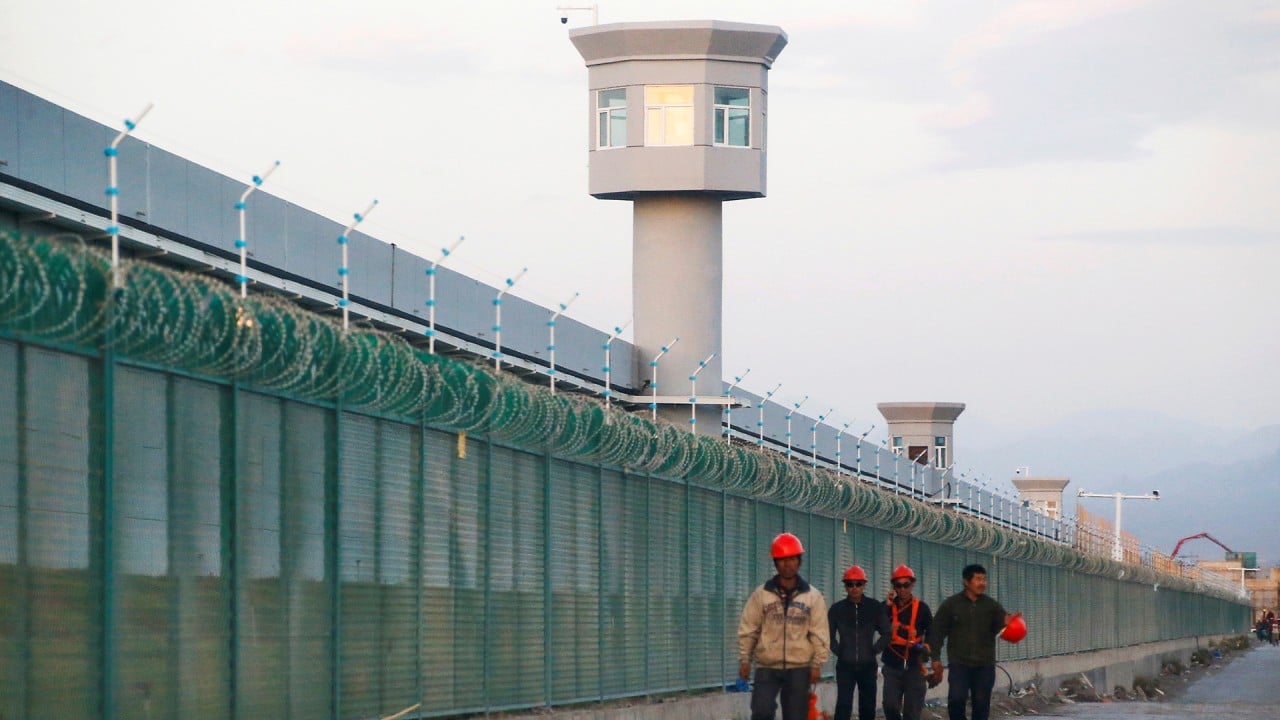
Xinjiang: no family planning policy targeting Uygurs, Beijing says
- Chinese official data shows birth rate in areas with 90 per cent indigenous population fell average 57 per cent from 2017 to 2018, Australian think tank reports
- ‘Compelling evidence’ that Xinjiang policies ‘may constitute act of genocide’, it says – but Beijing says Uygur population grew 25 per cent from 2010 to 2018
In response to the report, Chinese foreign ministry spokeswoman Hua Chunying said the Australian government-funded institute “fabricated anti-China narratives by concocting data, distorting facts”.

01:54
China hits back at UK claims of forced sterilisations and other human rights abuses against Uygurs
“Between 2010 and 2018, the Uygur population in Xinjiang increased by 25 per cent, notably higher than the 2 per cent for the ethnic Han group,” Hua said.
The ASPI analysis said that according to Chinese government data, including regional population figures released in March, the birth rates in counties with a 90 per cent or greater indigenous population declined by an average of 57 per cent from 2017 to 2018, far more than in other regions in Xinjiang and China during the same period.
“Our analysis builds on previous work and provides compelling evidence that Chinese government policies in Xinjiang may constitute an act of genocide,” it said.
The report said the Chinese authorities used fines, internment or the threat of internment to discourage births.
What is going on in Xinjiang and who are the Uygur people?
Hua on Thursday said such allegations were “outrageous” lies aimed at harming Xinjiang’s economy and stability.


